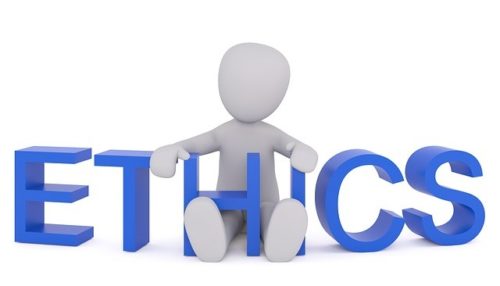- Goal of Deposition
- Client Myths
- Types of Clients and Approaches
- General Deposition Guidelines
- Answer Deposition Questions
- Methods of Deposition Preparation
- Meditation
-
Preparing Clients for Deposition: An Investment in Performance In this timely and compelling program, attorney, Alan Fanger Presents, “Preparing Clients for Deposition: An Investment in Performance”. Mr. Fanger begins the program with an overview of deposition goals and some client myths. Attorney Fanger continues the program by, systemically, covering the types of clients and how to approach each one. The program continues with general deposition guidelines and the best way to answer deposition questions. Mr. Fanger proceeds to explain the methods of deposition preparation. The program concludes with a discussion on mediation. With Mr. Fanger’s decades of experience, this program is a must for any attorney Agenda:
-
Second Circuit Court of Appeals: Practice and Procedure In this compelling and timely CLE program, attorney, Jacquelyn Mouquin, presents “Second Circuit Court of Appeals: Practice and Procedure”. Attorney Mouquin begins the program discussing basic terms, jurisdiction, and admission to the court. The program continues to cover preliminary forms, briefing scheduling, and formats of briefs. Attorney Mouquin also goes in depth explaining oral arguments, motions, and petitions. The program concludes and with the difference between civil and criminal appeals. This course is for any attorney wishing to know more about the Second Circuit Court of Appeals.
-
Avoiding #MeToo and Sexual Harassment in the Workplace
-
Avoiding the $1.5 Billion Mistake: Article 9 Lessons Learned from the GM Bankruptcy In this compelling and timely CLE program Attorney, Donald Petersen, covers Article 9 implications. Mr. Petersen will discuss the importance of Article 9 and how it works. Mr. Petersen will cover, systemically, his own steps to success with regards to Article 9 issues. This program is a must listen for any attorney wishing to learn more about Article 9 AGENDA: What is Secured Transactions? UCC and Article 9 Introduction Article 9 UCC Article 9 Steps to Success Proceeds Analysis PMSI Disbursing Cash Proceeds
-
The Impact Of Internet and Sports Betting for Lawyers
-
Oregon 45 Credit Bundle with Ethics, A/J, Child/Elder Abuse, & Mental Health - All Courses Approved in Oregon
-
Oregon 45 Credit Bundle with Ethics, A/J, Child/Elder Abuse, & Mental Health - All Courses Approved in Oregon Bundle Courses Include:
Unfair, Deceptive, or Abusive Acts or Practices (UDAAP) - (1.25 Credits)
Taking Off the Gloves: What to Expect in U.S. Tax Court (1.5 Credit) How the IRS Reconstructs Income in Tax Fraud Cases (1.5 Credit) Cross Examination Made Simple (1.5 Credit) Direct Examination: Making the Witness Look Good (1.25 Credits) Anatomy of a Civil Tax Controversy (1.5 Credits) Opening Statement As a Story 101 - (1 Credit) Opening Statements As a Story - 102 (1.5 Credits) Closing Arguments (1.75 Credits) Fair Debt Collection Practices Act - (1 Access to Justice Credit) Information Law Firms Collect and Store – What to do in the Event of a Cyber Breach? - (1.25 Credits) Story Telling in the Courtroom Part 1 - (1.5 Credits) Story Telling in the Courtroom Part 2 - (1.25 Credits) Story Telling in the Courtroom Part 3 - (1 Credit)Basics of How to Obtain a Patent (2 Credits)
The Fifth Amendment’s Essential Role in Offshore Audits (1.5 Credits) Digital Millennium Copyright Act (1 Credit) NCAA & Name, Image, Likeness – Updates & Anarchy in America! (1.25 Credits) Paying for Referrals: A Danger to the Payor and Recipient's Freedom (1.25 Credits) Dealing with the Disruptive Practitioner in a Legally Compliant Manner (1 Credit) Psychosocial Evaluations and Consultation in Civil Litigation: Strategies to Understand and Humanize the Client - (1.25 Credits) The Anti-Kickback Statute (1 Credit) The Healthcare Quality Improvement Act: How to Achieve Immunity in Your Peer Review Process (1 Credit) Physician Employment Agreements: Problem Areas that can be Landmines (1 Credit) NFL Contract Advisors – “So You Want To Be An Agent" (1.75 Credits) Order in the Court: Ethical Interaction With Judges (1 Ethics Credit) Effective and Ethical Use of Experts (1 Ethics Credit) Ethical Issues - Pro Bono Representation: Help the Profession Help Others (1 Ethics Credit) Online Civility and Professionalism for Attorneys (1 Ethics Credit) Unauthorized Practice of Law: Ethical Dilemmas and the Rule of Law (1 Ethics Credit) The Impact Of Internet and Sports Betting for Lawyers (1 Mental Health/Substance Abuse Credit) Elimination of Bias in the Legal Profession: Both Personally and Professionally (1 Access to Justice Credit) Technology & Bias Spreading It And Stopping It (1 Access to Justice Credit) Immigration Basics: Coming to America and Staying (1 Access to Justice Credit)Understanding Oregon's Legal Landscape for Child and Elder Abuse (1 Abuse Reporting Credit)
Evidence 101 (1.5 Credits) Evidence 102 - (1.25 Credits) Microsoft Office 365 For Attorneys (1 Credit) -
Psychosocial Evaluations and Consultation in Civil Litigation: Strategies to Understand and Humanize the ClientMany civil litigation attorneys (plaintiff and defense), particularly in the fields of personal injury and medical malpractice, struggle to understand the harm or injury their clients have suffered. In this course, forensic expert Mark Silver provides for the lawyer the psychosocial evaluation as a useful and humanistic tool to better conceptualize and understand the harms that the client has suffered, such that the lawyer can advocate for the client in a more informed and holistic manner with a consideration for a broad range of harms that may require compensation.Learning Objectives:I. Understand a new tool to add to a personal injury (or medical malpractice) practice to evaluate the harms clients have suffered for evaluation purposesII. Identify the possible psychological effects of harm from an injury in a much broader mannerIII. Recognize how to advocate for your client by understanding a broader range of harms
-
The Burned Out Lawyer- Recognition and Prevention Strategies If there is one word we heard during our journey through the pandemic and continue to hear more than any other term as we navigate into the Post-COVID “new normal” world, it is “burnout.” But what is burnout? What does it look like and feel like? More importantly, what can we do to prevent the normal stress and “lawyer anxiety” so common in our profession from developing into the physically and emotionally draining state known as Burnout? Recent studies have shown that there has been a dramatic increase in impairment due to alcoholism, addiction and mental health disorders among members of the legal profession. The statistics are compelling and clearly indicate that 1 out of 3 attorneys will likely have a need for substance use or mental health services at some point in their careers. Agenda
- The early warning signs of impairment, with special emphasis on stress and burnout.
- Symptoms of stress and burnout that are particularly prevalent among members of the legal profession;
- Discussion will include the basic stress reactions, both physical and psychological; the difference between healthy stress and distress, with emphasis on the impact of the COVID-19 pandemic.
- The transition from distress to burnout and how we can recognize and identify the sources of stress in our lives before burnout develops.
- Guidelines for a “master plan”, including realistic prevention strategies that work.
- Why lawyers and judges are at especially high risk to develop mental health and substance use disorders.
- The free services that Lawyers Assistance Programs provide to lawyers, judges, their family members and law students.
- The barriers that prevent lawyers and judges from seeking the help they need.
- The role that education plays in breaking the stigma and fear associated with alcoholism, substance use disorders and mental illness in the legal profession.
-
Coronavirus and Your Mental Health In this timely and compelling CLE program, Attorney, Brian Quinn presents, “Coronavirus and Your Mental Health: A Lawyer’s Guide to Coping with Isolation, Anxiety, and Fear in Uncertain Times”. Mr. Quinn begins the program with a discussion on mental health statistics and symptoms of depression and stress factors. The program continues with an overview of dealing with solitude, anxiety, and fear. Mr. Quinn then explains ethically challenges and some warning signs. The program concludes with challenges of seeking help and how lawyers can seek help. This program is for all attorneys. Agenda
- Mental Health Statistics
- Symptoms of Depression
- Stress Impact and Factors
- How to Distress
- Solitude and Loneliness
- Dealing with Anxiety
- Dealing with Fear
- Ethically Challenges
- Warning Signs
- Challenges with Seeking Help
- How to Seek Help




